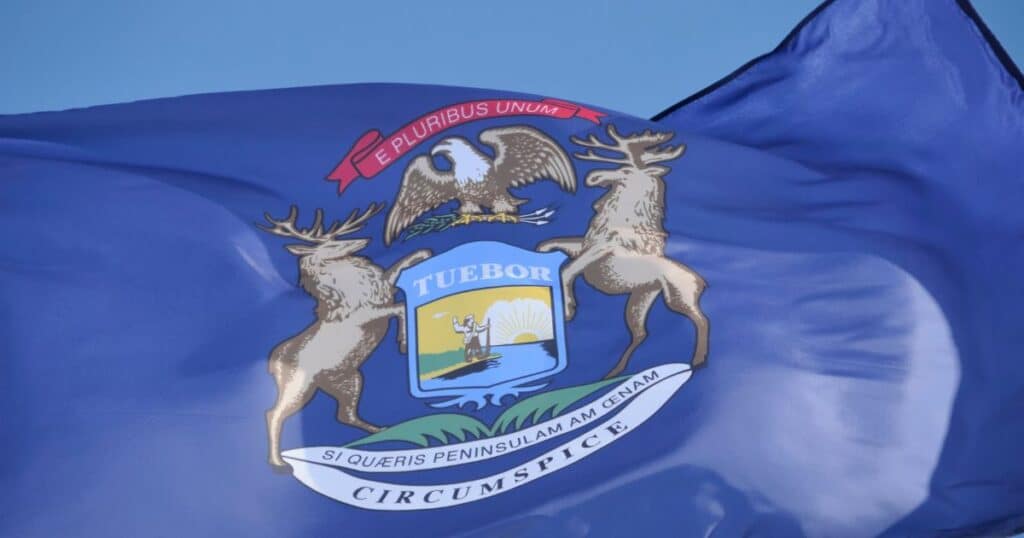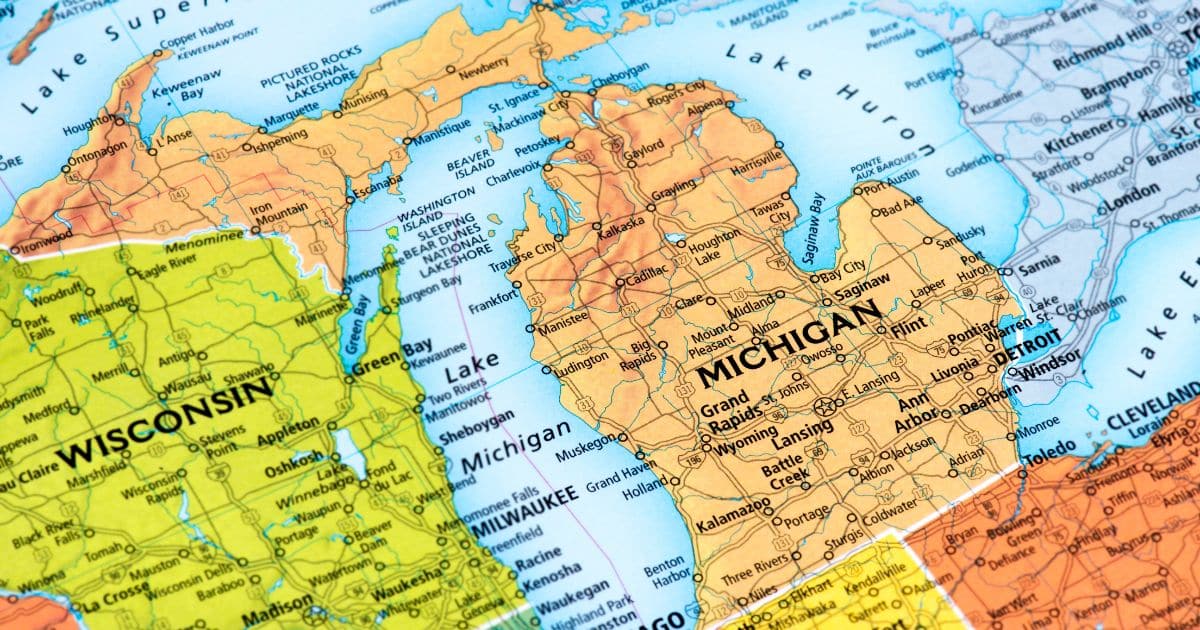The recent signing of bipartisan legislation in Michigan, SB 179 and SB 180, marks a significant step forward for the state’s cannabis industry. This new legislation allows for business partnerships between Native American tribes and state-licensed companies, breaking down previous legal barriers that prevented trade between the two entities.
Since the legalization of adult-use cannabis in Michigan in 2018, tribal governments, such as the Grand Traverse Band of Ottawa and Chippewa Indians and the Sault Tribe of Chippewa Indians, have been participating in the state’s cannabis market. However, due to existing laws and regulations, these tribes were operating separately from state-licensed businesses.
The passing of SB 179 and SB 180 changes this dynamic by allowing for direct trade between tribes and state-licensed companies. This is an important development for both parties, as it opens up new opportunities for growth and collaboration in the industry.

In recent years, there has been a growing interest among Native American tribes in entering the cannabis industry. This is due to both economic reasons and cultural ties to the plant. Just last week we reported that North Carolina’s Eastern Band of Cherokee Indians dealing out its first medical marijuana cards and will be opening its first recreational cannabis sales on tribal lands, despite adult-use cannabis remaining illegal under state laws.
However, this growing involvement in the industry has been met with legal barriers. Due to conflicting laws and regulations between tribes and state governments, there were limitations on trade and partnerships between Native American tribes and state-licensed businesses. This hindered the potential growth and success of both parties in the industry.
SB 179 and SB 180 aim to address these barriers and promote collaboration between tribes and state-licensed companies. By acknowledging the sovereignty of tribal governments and their right to participate in the cannabis market, this legislation sets a precedent for fair trade practices within the industry.
The legislation goes into effect immediately.
Overview of Key Provisions
According to state documents SB 179 and SB 180 would amend the Michigan Regulation and Taxation of Marihuana Act, which regulates the adult recreational marijuana market, to do all of the following:
• Allow the Cannabis Regulatory Agency (CRA) to enter into an agreement with an Indian tribe regarding marijuana-related regulatory matters. (SB 180)
• Exempt sales of marijuana by tribal businesses located in Indian lands from the state’s 10% excise tax if certain conditions are met. (SB 180)
• Prohibit certain individuals from having a pecuniary interest in a tribal marijuana business. (SB 180)
• Provide that transportation of marijuana by a licensee to or from a tribal marijuana business is not unlawful. (SB 180)
• Allocate a portion of the unexpended balance of the Marihuana Regulation Fund to an Indian tribe for certain sales of marijuana attributable to a marijuana retailer or microbusiness located in that tribe’s Indian lands. (SB 179)
Impact of the Legislation
The passing of SB 179 and SB 180 has numerous positive implications for both Native American tribes and state-licensed cannabis companies in Michigan.
For Native American tribes in Michigan, this legislation opens up new opportunities for economic growth and development. By allowing them to engage in direct trade with state-licensed businesses, tribes can diversify their revenue streams and create jobs within their communities.
Additionally, the allocation of funds from the Marihuana Regulation Fund will provide much-needed financial support for tribal governments.
On the other hand, state-licensed companies now have access to a new market and potential business partnerships with tribes. This can lead to increased market competition, driving innovation and growth within the industry.
Moreover, this legislation promotes fairness and equality in the cannabis industry by recognizing the sovereign rights of tribal governments to participate in the market. It also addresses previous legal barriers that disproportionately affected tribal businesses and created a disadvantage for them.

This is a win-win situation for both Native American tribes and state-licensed cannabis companies in Michigan. By allowing for direct trade and partnerships between the two parties, SB 179 and SB 180 promote economic growth, job opportunities, and fairness within the industry.
Additionally, this legislation is part of a growing trend of Native American tribes entering the cannabis industry. This is significant not only for the economic benefits but also because of the cultural ties and history that tribes share with the cannabis plant as a medicine.
It is important to continue fostering collaboration and inclusivity in the industry, and SB 179 and SB 180 are great steps towards achieving this goal. As Michigan’s cannabis market continues to evolve, we can expect to see even more positive developments like this in the future.
Enjoyed that first hit? Come chill with us every week at the Friday Sesh for a freshly packed bowl of the week’s best cannabis news!
- Texas Expands Medical Cannabis Access with House Bill 46
- MMJ BioPharma Cultivation vs. the DEA
- Poll Shows Americans Back States’ Right to Cannabis Reform
- Restaurant Spotlight: Pizzeria Due – Where Deep Dish Pizza Becomes a Chicago Rite of Passage
- Maryland Leads the Way in Cannabis Pardons, Setting an Example for Much-Needed Cannabis Reform
- Military Construction and Veterans Affairs Bill Amendments Could Change Medical Marijuana and MDMA-Assisted Therapy Options for Veterans















